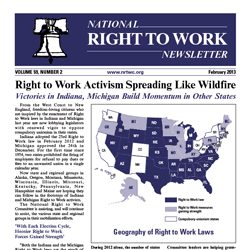Right to Work South's 'Economic Prospects Shine Bright'
In a new commentary for Forbes, economic demographer Joel Kotkin elucidates why the states of “the old Confederacy,” which just happen to all be Right to Work states, have “long-term economic prospects” that “shine bright.” Meanwhile, none of the declining states in…

